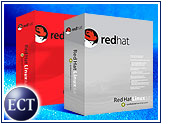
Microsoft and Oracle find themselves butting heads in a number ofhigh-tech arenas, but the software giants have both managed to carve outa sizable presence in the e-commerce sector.
The companies have so far taken different, but profitable routes to providinge-commerce products and services to clients, with Microsoft focusing in recentyears on growing its niche in the small-business sector, while Oracle hasconcentrated mainly on mid-size business and the largest corporationsfor its growth.
But as both look to broaden their clientele, analysts said the two could clashwith more frequency, battling to capture the growing number of mid-size commercecompanies going online.
Differing Tactics
Gartner research director Whit Andrews noted that Microsoft and Oraclehave historically staked out distinctive approaches to the e-commerce sector.
“Oracle is seen as being more CRM-focused and doesn’t have as much on thecommerce side,” Andrews told the E-Commerce Times. “Microsoft is consideredone of the early e-commerce pioneers that wasn’t able to live up to the early promise.”
Both have honed their approaches over the years, however, to make e-commerceproducts and services pay off.
According to figures from Giga Information Group, Microsoft scored US$135 millionin revenues from e-commerce products and client services in 2001, while Oracle madeabout $75 million in that market.
Both companies offer prepackaged as well as standalone applications that help businesseswith Web-based hosting, e-mail, catalog, search, personalization, shopping cart and otherfunctions.
Small Biz Pays Off
Gartner’s Andrews said Microsoft has made notable e-commerce gains in recent monthswith its slate of bCentral and Commerce Server 2000 applications geared heavily tosmall businesses. This is in addition to its steady inroads within large corporations.
Andrews said that because of its recent focus, Microsoft has positioned itself as the mostattractive provider for companies looking to set up a functioning e-commerce system forunder $200,000, making most small-business systems possible for between $50,000and $150,000.
“Microsoft has a broader range of applications related specifically to e-commerce,”Andrews said, although he noted that Oracle programs tend to come with more functionsthat link commerce to customer relationship management features.
Experts said Oracle has traditionally focused its e-commerce efforts toward larger companieswith more complex enterprise needs, and it has managed to keep up with Microsoft in thebig-company arena.
“With companies above 1,000 employees, they’re pretty much neck and neck,” said Andrews.
Aiming at the Big Game
Giga e-business strategy analyst Andrew Bartels said Oracle has tended to targetits services toward companies making between $50 million and $1 billion inannual revenues. That market has proven lucrative because once large enterprisesbegin using Oracle products, they tend to stick with them in the long term whenupgrading or adding services.
But a slowing economy has prompted Oracle to look down-market for new growth.
“Oracle is trying to move to the mid-sized businesses a bit,” Bartels told the E-CommerceTimes, noting the company is now marketing its services to the top 20,000 global companies.
Bartels said Microsoft’s push for small businesses — which number in the millions globally –could pay off but also poses big challenges. Many small businesses, especially brick-and-mortarestablishments that thrive on walk-in traffic, are harder to convince of the need for Web commercecapabilities.
“Very few of the small companies really have the need for doing things online,” the analyst said.
The Middle Game
He noted, however, that the mid-size sector is “really underserved,” and he expects thesoftware titans to duke it out in the next few years over new international business, as wellas in the government and retail sectors.
While he expects Oracle to retain its long-term focus on larger companies,Yankee Group research director Michael Speyer told the E-Commerce Timesthere are signs Oracle is looking to confront Microsoft on the mid-sizebusiness battleground.
For example, Oracle is offering a hosting service called NetLedger that is designed to servethe accounting needs of mid-size businesses, including e-commerce firms. This followsmoves by Microsoft to get into the middle-range game with the acquisition of companiessuch as Great Plains, a mainstay in accounting software products for small- and mid-sizecompanies.
Many More Players
Experts emphasize, however, that Microsoft and Oracle are by no means the only combatants.Giga’s Bartels noted that IBM posted $95 million in revenues during 2001 for commerce-relatedservices to its global clients, although he added that IBM’s focus is more on infrastructure and Webplatform services than specific e-commerce applications.
Bartels said big splashes are being made by companies that specialize in commerce andenterprise products — BroadVisionfor example, made $105 million from e-commerceofferings last year, and ATG took in $76 million.
The Yankee Group’s Speyer said the software giants are also competing with companiesoffering e-commerce features in their successful CRM products, including Siebel Systemsand PeopleSoft.














































Social Media
See all Social Media